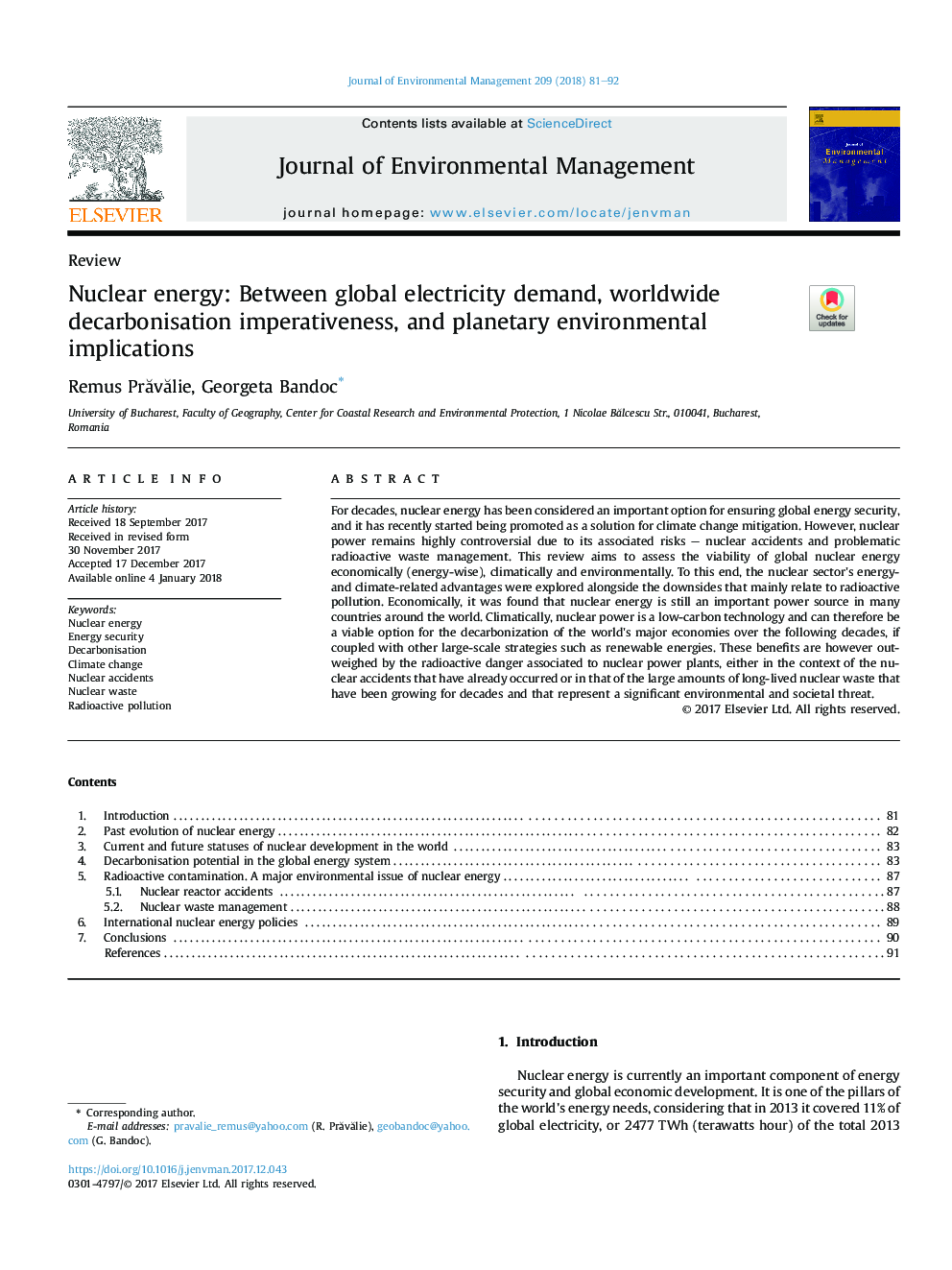| Article ID | Journal | Published Year | Pages | File Type |
|---|---|---|---|---|
| 7478185 | Journal of Environmental Management | 2018 | 12 Pages |
Abstract
For decades, nuclear energy has been considered an important option for ensuring global energy security, and it has recently started being promoted as a solution for climate change mitigation. However, nuclear power remains highly controversial due to its associated risks - nuclear accidents and problematic radioactive waste management. This review aims to assess the viability of global nuclear energy economically (energy-wise), climatically and environmentally. To this end, the nuclear sector's energy- and climate-related advantages were explored alongside the downsides that mainly relate to radioactive pollution. Economically, it was found that nuclear energy is still an important power source in many countries around the world. Climatically, nuclear power is a low-carbon technology and can therefore be a viable option for the decarbonization of the world's major economies over the following decades, if coupled with other large-scale strategies such as renewable energies. These benefits are however outweighed by the radioactive danger associated to nuclear power plants, either in the context of the nuclear accidents that have already occurred or in that of the large amounts of long-lived nuclear waste that have been growing for decades and that represent a significant environmental and societal threat.
Keywords
Related Topics
Physical Sciences and Engineering
Energy
Renewable Energy, Sustainability and the Environment
Authors
Remus PrÄvÄlie, Georgeta Bandoc,
